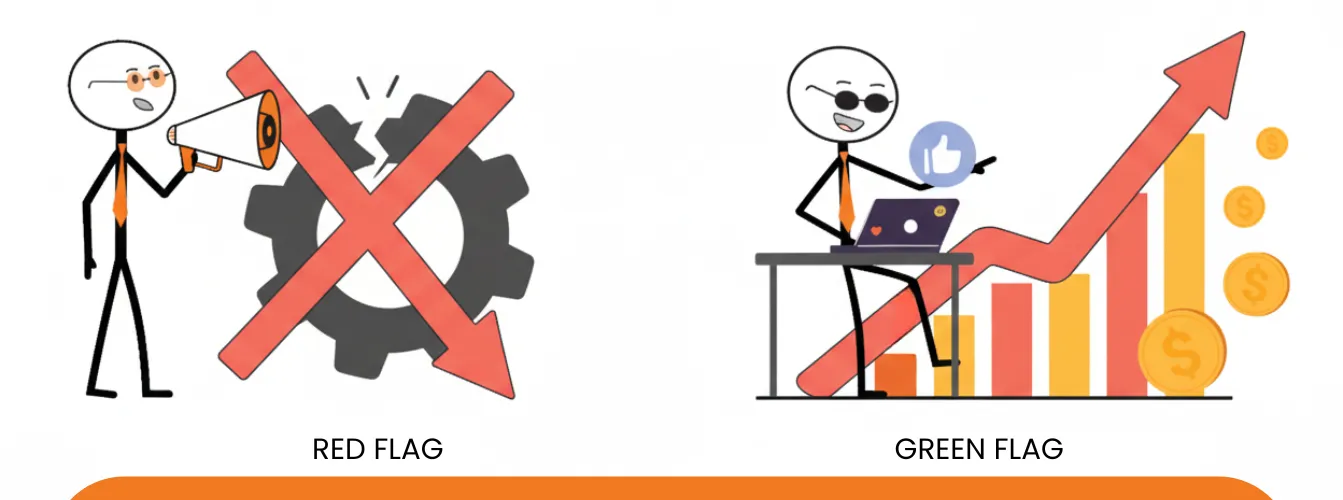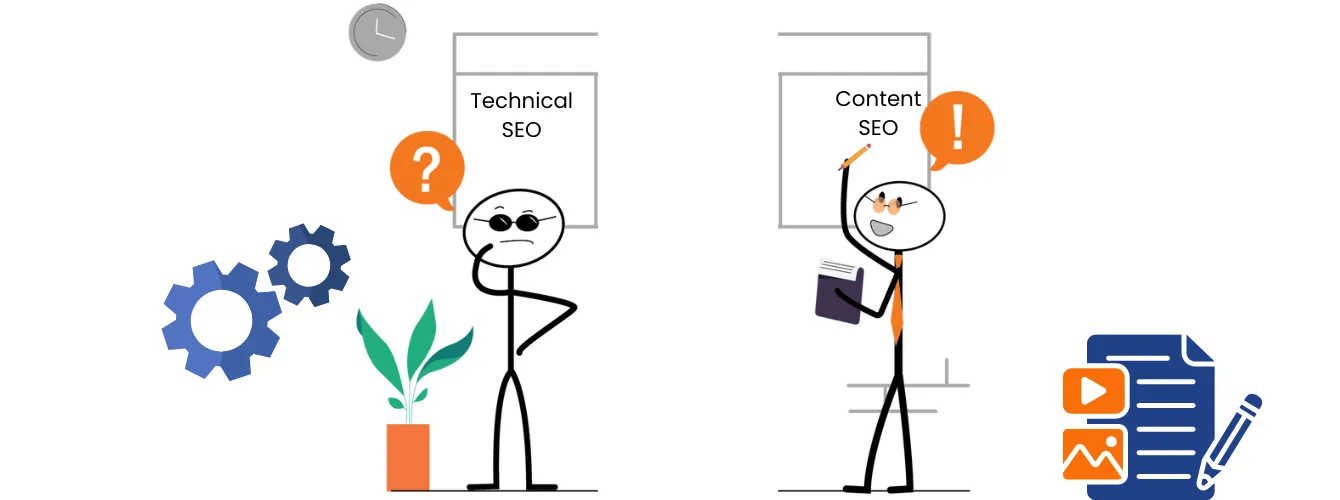Choosing the right digital marketing agency can feel daunting, especially when their sales pitches sound similar and everyone promises “amazing results.” In 2025’s crowded online market, making a smart choice means looking beyond fancy presentations and understanding what really sets a good agency apart. This guide, written in clear and simple language, will help you spot the difference and find an agency that is truly right for your business.
Why Evaluating Your Agency Matters
Your digital presence is often the first touchpoint for potential customers. A great marketing agency isn’t just running ads or posting on social media; they partner with you to grow your business and safeguard your investment. The wrong agency can waste your money, time, and even harm your reputation.
8 Key Things to Consider When Evaluating an Agency
Selecting the right agency is crucial for your business’s success. Use these guidelines, based on 6 years of experience, to thoroughly assess potential partners and find the perfect fit for your brand’s unique needs and goals.
1. Track Record and Trustworthiness
The best way to judge an agency’s potential is by looking at their past performance. Trustworthy agencies proudly showcase real success stories, provide client reviews you can check, show you before-and-after results, and share genuine case studies. If an agency is hesitant to share clear proof or if their past clients sound unhappy, see this as a warning sign. Also, check if they’ve received any awards or have long-term partnerships with clients, showing they deliver consistent results.
2. Understanding of Your Brand and Industry
A digital marketing strategy isn’t one-size-fits-all. The agency you pick should “get” your brand—the style, goal, and uniqueness that make you stand out. Sit down and ask them to describe your brand in their own words and share ideas suited to your industry. If they’ve worked with businesses like yours before and already know your audience, that’s a huge plus. Their proposal should feel tailored, not generic, and show that they’ve done their homework.
3. Clarity of Proposal and Communication
A quality agency clearly explains their plan for your business. Their proposal should be detailed, easy to understand, and include strategies, timelines, and how they’ll report on progress. How they communicate during this phase—whether they answer questions openly and timely, or dodge details—says a lot about future collaboration. Agencies that ignore emails, are slow to respond, or gloss over your concerns might let you down if problems come up.
4. Tools, Technology, and Reporting
2025 digital marketing is powered by analytics tools, AI, automation, and fast response times. Ask what platforms and tools the agency uses for campaign management, audience targeting, and reporting. The best firms use up-to-date, often proprietary technology. They should guarantee transparent, regular reports so you always know what you’re getting for your money.
5. ROI, Results, and Strategic Thinking
While clicks and likes are good, what really matters is a direct impact on your business—sales, quality leads, and growth. A reliable agency explains how they’ll track your ROI (Return on Investment) and make adjustments to improve results. They should show examples—like how they increased leads for a client or reduced costs per sale—and be ready to measure, report, and adapt. Real agencies don’t promise instant miracles; they set clear expectations and show their ongoing process for improvement.
6. Transparency and Accountability
The right partner is always honest about what’s working and what’s not. They never hide data or brush off your questions as “technicalities.” If they ever make a mistake (and everyone does sometimes), they’ll admit it and show you how they’ll fix it. You should never feel left in the dark or excluded from your own marketing data. Some of the worst horror stories in the industry start when agencies withhold data or refuse clear explanations.
7. Pricing, Contracts, and Value
A good agency is clear about costs, what’s included, when and how you’ll pay, and doesn’t surprise you with hidden fees after signing. Some agencies offer package deals, while others prefer custom quotes. Compare the scope and costs with other agencies, but remember, cheap isn’t always best—sometimes low prices hide weak service or lack of expertise.
8. Company Culture and Fit
You’ll work closely with your agency’s team, so their approach should match your company’s values and working style. Meet the team who’ll handle your account, not just the sales rep. Trust your gut: if the relationship feels forced from the start, it might not improve later. An agency that’s open, eager, and aligned with your vibe makes for a smoother long-term partnership.
The Evaluation Process: What Should You Do?
- Start with Your Goals: Make sure you’re clear on what you want—more sales, leads, brand awareness, or something else. Share these with each agency you consider.
- Shortlist and Research: Choose 2–4 agencies based on recommendations, online reviews, and case studies. Do your due diligence.
- Ask the Right Questions: Request case studies, client references, and a run-down of how they’d approach your challenges. Learn who your “day-to-day” contact would be.
- Check Transparency and Contracts: If the agency hides details, is vague about pricing, or refuses to guarantee access to data, walk away.
- Trial Period and Reporting: Consider testing with a small campaign or starter package. A trustworthy agency will agree to this and impress you with their results and reporting.
- Review and Decide: Use all your notes—and if you want, handy templates provided by some agencies—to compare your options side by side.
Red Flags to Avoid
- Unclear or hidden pricing
- Over-promising (“guaranteed #1 ranking overnight”)
- Lack of data transparency or access
- Poor communication, slow responses
- No track record or sketchy testimonials
- High staff turnover or no clear point of contact
Final Thoughts
Evaluating a digital marketing agency in 2025 isn’t just about finding the best pitch—it’s about partnership, transparency, and proven expertise. Take your time reading contracts and proposals, ask tough questions, and trust both your logic and instincts. A great agency like influx will welcome your questions and work with you, not just for you, to achieve lasting results.
By focusing on track record, transparency, technology, and real strategic thinking, you can choose a partner who will help your business thrive for years to come.
Frequently Asked Questions
What is the most overlooked factor when choosing a digital marketing agency?
Many businesses forget to check how well the agency’s working style matches their own. Good teamwork and clear communication are just as important as technical skills—make sure you feel comfortable with their team before signing on.
Should the agency have experience specifically in my industry?
Industry experience is helpful, but not always essential. Good agencies like influx can adapt their strategies to new sectors if they understand your audience and are eager to learn about your business.
How can I tell if the agency really listens to my needs?
The agency should ask lots of questions about your goals, not just talk about their services. They should adjust strategies when you share feedback and keep you updated often.







